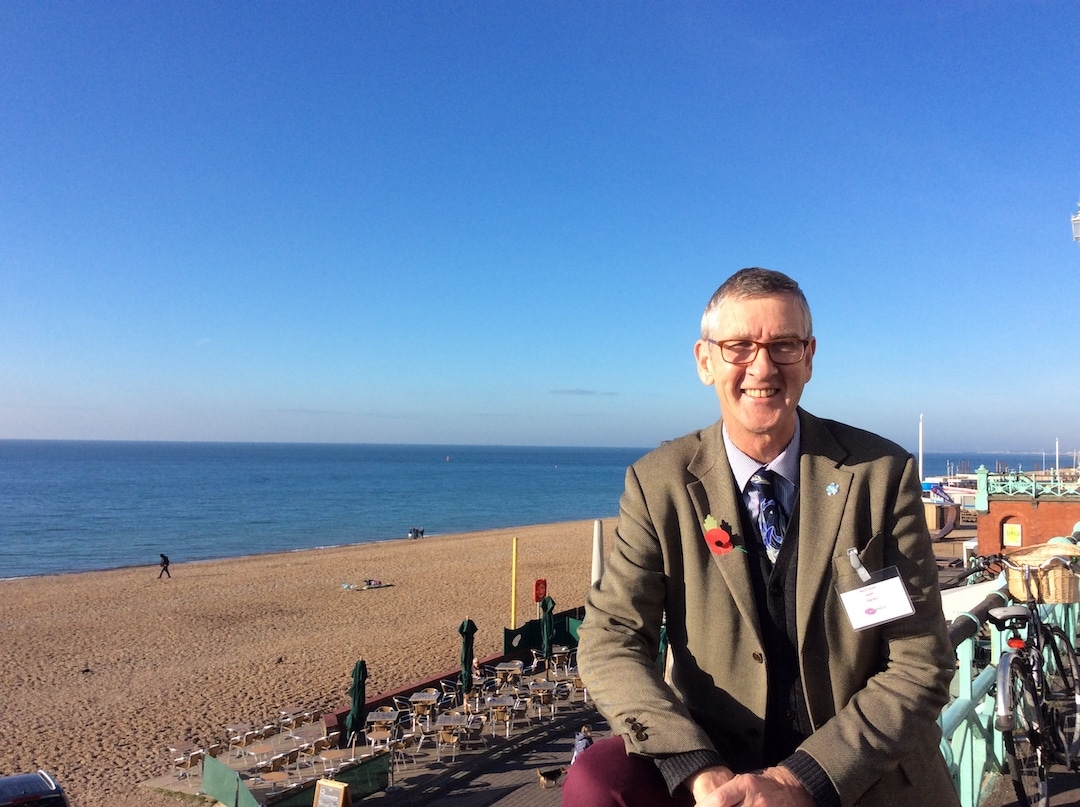Keith Oliver was diagnosed with Alzheimer’s disease in 2010. He talks about how he has coped and shares his advice for others who have just received a diagnosis…
I was 54 years old in 2010 when I was told by a neurologist completely out of the blue that he thought I had Alzheimer’s disease and was sending me for tests to confirm it. I had booked a family holiday to Australia and he recommended we cancel it. My family and I felt vulnerable and in shock and almost took his advice. But I was determined not to cancel the holiday. We amended the itinerary slightly and went away. We’ve been five more times since. We have tried not to put life on hold.
When you are first given a diagnosis, it’s important to realise that everyone is different. Each situation is unique. You may be in shock and you may have lots of questions. You may need some time for it to sink in.
But there are practical issues to think about. You have a legal obligation to notify the DVLA. Lasting Power of Attorney should be done very early on too. This usually takes the pressure off. I would suggest getting wills up to date as well. My wife and I did both of our wills at the same time so it wasn’t one-sided and this worked very well. Once it’s done, the pressure is off again and you can park any worries about paperwork.
In my situation, I felt that knowledge was power. I didn’t want it to be me battling against Alzheimer’s disease. With this in mind, information was power. I wanted to understand as much as I could about the disease in order to manage it and then try and control it. I didn’t want to fight it but wanted to try and be in control of my life. I began reading up about the disease. I visited websites and read books. My own book, Walk the Walk, Talk the Talk (available at Alzheimer’s Society’s online store) gives insight into my life before, during and after the diagnosis and may be helpful.
I also think it’s important to have a good, open conversation with your GP. Talk to them about a care plan and find out what support is going to be offered. Ask if there is any medication you can be given for your dementia (to help manage the symptoms) and ask for it to be prescribed as early as possible. Ask if there is an Admiral Nurse in your area – these are dementia-trained nurses on hand to provide help and support to families living with dementia (https://www.dementiauk.org/how-we-help/admiral-nursing/)
Meeting others in similar situation can be very helpful too, but again everyone is different. Some people would prefer to be alone while others just want those close to them around.
I would also recommend watching videos and interviews featuring people with dementia. They can be very helpful. There are lots of dementia diaries and videos and YouTube can be a good resource.
Don’t give up, live for today and make sure you have things planned, like holidays or outings, that you can look forward to in the very near future. Then make it happen. This works for me! Finally, try to be adaptable and seek inner strength and support from others. Support is key.
Keith will be speaking at this year’s Alzheimer’s Show in London on 9 June 2017. Visit https://alzheimersshow.co.uk

Keith your thoughts are spot on thank you. I am the daughter of a step father and then Mum with dementia – different types so different effects. Your point about getting information is so right. We are as so far ahead of the curve as we can be and those considerations of LPAs and wishes are very important. Don’t sit back – be proactive and use the information available is such a good message.